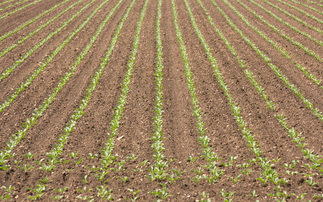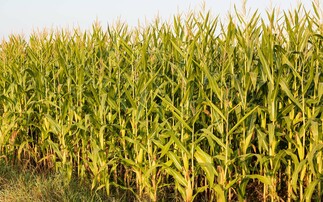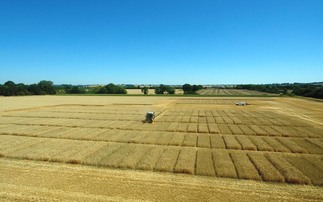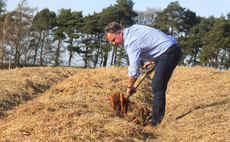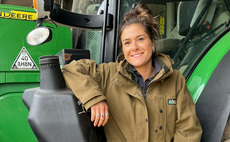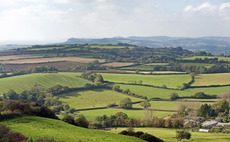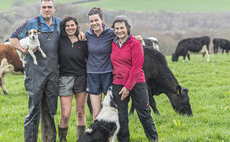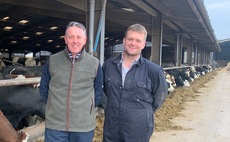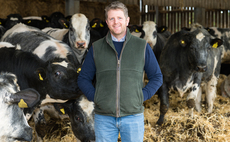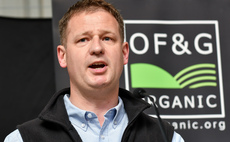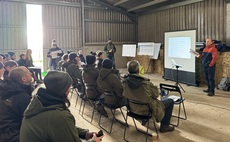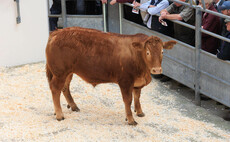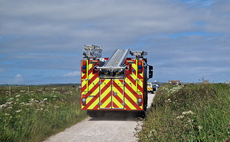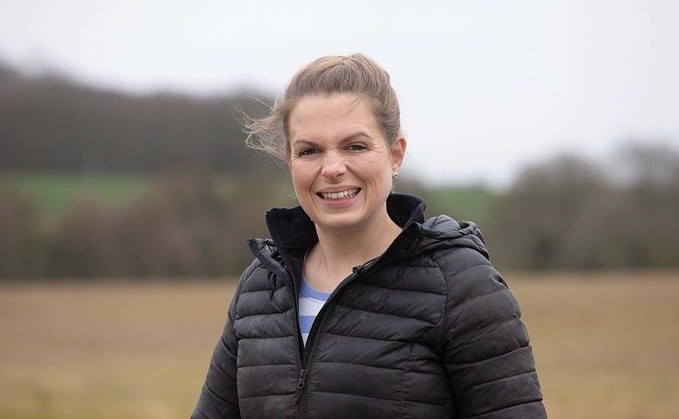
A physiotherapy career is not a natural precursor to farming, but Hannah Darby has brought insights from outside agriculture back to the family farm. Chloe Dunne reports.
Despite growing up on the family farm in Cambridgeshire, agriculture was not Hannah Darby's primary career choice.
With a passion for practical science, the now 31-year-old instead invested huge amounts of time and effort in to becoming a physiotherapist which saw her undertake a three-year university course followed by four years of diverse industry practice. It created her a career with a solid trajectory, but something was missing.
"I started going to young farmers when I moved to Colchester after finishing university and I realised there are so many opportunities within our sector that I just didn't know existed when I was growing up," Hannah says.
"I really missed the farm, and for the first time I could actually start to see my future within it."
Now back at Roughs Farm, Sawtry Fen, Peterborough, where she grew up, Hannah farms 360 hectares across three sites in equal partnership with her uncle, Tony Darby.
Her journey into full-time farming began in October 2013, when she left her senior physiotherapy job and enrolled in a crop management masters at Writtle College.
Hannah says: "Education and development played a big role within physiotherapy. Doing the masters course was important for me to gain in-depth knowledge of farming and really learn it for myself, not just what my dad and uncle already knew."
In 2014, she moved back to Peterborough and, while completing her masters, held down two part-time physiotherapy jobs as well as farming at home. But in 2017 everything changed when her dad passed away with multiple myeloma, a form of blood cancer.
Hannah says: "My dad was brilliant. He always encouraged others and we had three great years working together. He was responsible for all the combinable crops on the farm while my uncle focused on the sugar beet and potatoes. So, it was on me really. I had to step up."
Hannah and Tony now grow winter wheat, sugar beet, oats, barley, beans, peas and potatoes which are marketed to a range of outlets including brewers, maltsters and seed houses.
In 2019, the farm put 20ha into mid-tier countryside stewardship incorporating wild bird cover, beetle banks, six-metre nectar flower margins and grass strips on hilly fields which has increased income from unproductive areas of the farm while creating additional wildlife habitats.
Utilising cover crops and overwintered stubbles is helping to generate income from existing practices and plays an effective role in Hannah's min-till management system.
In an attempt to manage the unique fenland soil, Hannah's father and uncle first abandoned the plough about 25 years ago to employ a range of min-till practices. But the weed burden presented a real issue with relation to increasing blackgrass populations and in 2014 they rotationally ploughed the whole farm to help relieve the pressure.
Keen to overcome the challenges, in 2017 Hannah enrolled on a soil systems course at Cranfield University to gain a better understanding.
She says: "Preserving the quality and productivity of our soils were my main motivations for signing up. Continuing professional development and a close link with current research played a massive part in my physiotherapy practice and I don't see why it can't play a larger part in farming."
Since autumn 2017, every cultivation now has to be justified. Hannah accompanied this new policy with GPS yield mapping to flag up any areas for concern and follows up with physical soil inspections. Growing spring cereals and cover crops have helped to fight blackgrass populations and overwintering has helped to reduce surface compaction, provide rain cover and support wildlife habitats for beneficial insects.
She says: "Soil health is really complex but addressing it is key to the future of our industry. About 95 per cent of food is produced directly from soil and only two years ago the it was announced that one third of the soil in the world is degraded and we may only have 50-60 harvests left.
"I'm really interested in regenerative agriculture and I think it's got a large role to play in our future."
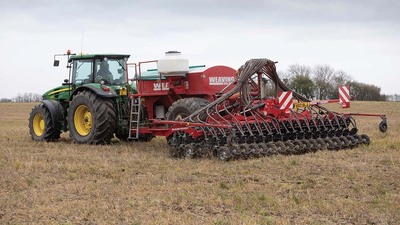
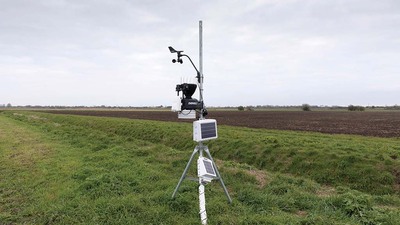
Farm facts
- 360ha over three sites: Sawtry Fen, 200ha deep fenland peat; Newborough, 100ha wasted/combination peat; Glatton: 60ha heavy clay
- Fenland soil challenges: high organic matter (averaging 30-50%), high nitrogen content, low moisture retention and acidity resulting in rooting inhibition.
- Average annual rainfall: 500mm
Inspired to forge closer links with research and address a shortage of studies focusing on fenland soil types, in 2018 the farm supported a masters student from Cranfield University to undertake an investigation of microorganisms in their fenland soils.
Last year Hannah hosted a workshop with Cranfield sharing the findings of this research with local farmers. She is now hoping to undertake a joint project investigating soil health and resilience with another local farmer and they plan to feed these findings into leading industry bodies.
Community and collaboration are also key motivators for Hannah, who explains that networking with like-minded individuals has played an important role in her return to the family farm.
"During my physiotherapy career I was used to seeing around 15 patients a day, this was a massive contrast to farming at home," she says.
"I had to be proactive and getting involved with groups such as the East of England Agricultural Society helped me to get out there and meet people."
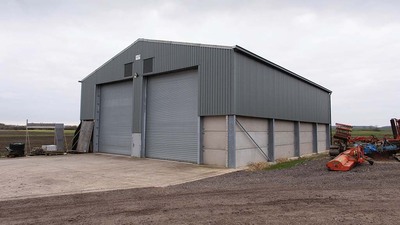
The farm's grain store.
Hannah has been involved in a range of initiatives including the Cultiv8 group, NFU sugar industry programme and local agronomy groups. In 2018 she was sponsored by the East of England Agricultural Society to attend the Royal Agricultural Society of the Commonwealth conference in Edmonton, Canada.
"I would encourage anyone, be that young people, anyone who isn't from a farm, or someone like me who is returning to the farm after working away, to get out there and meet as many people as you can," Hannah says.
Collaboration with machinery is another idea she is currently investigating and is keen to discuss with like-minded farmers.
"The cost of land and machinery is rising so much faster than on-farm returns and I don't see how smaller family farms like ours can continue to compete with that. It would be great if we could work together to combat some of this cost and improve business resilience. Obviously this would require the right kind of vision on both sides, but with the right people, machinery pooling could be a real game-changer.
"These are challenging times for many farmers and building business and personal resilience will have a huge part to play.
"Maintaining a positive mindset can be a real challenge and in recognising this I joined Farm Community Network as a volunteer offering free and confidential support. The work they do is invaluable, and I would urge anyone having any difficulties to contact them."
The Farming Community Network
The Farming Community Network (FCN) is a voluntary organisation and charity that supports farmers and families within the agricultural community through difficult times. Its free, confidential helpline (03000 111 999) is open 7am - 11pm every day of the year.













